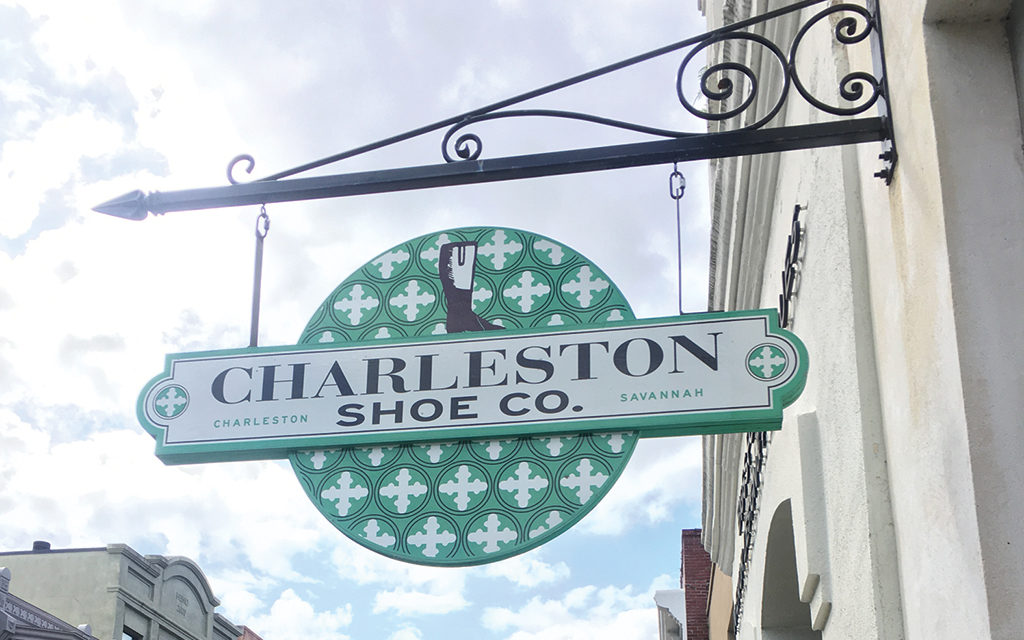You may not find Charleston Shoe Co.’s fashion-comfort stores listed on any travel guides, but they’re fast becoming tourist stops in resort locales up and down the Eastern Seaboard.
“I’ll have the same group of women in Nantucket [coming into our stores] with different sets of house guests,” said founder Neely Woodson Powell, who launched the Charleston, S.C.-based company in 1996 as an unbranded wholesale business importing stretch-upper shoes from Mexico.
Today the firm comprises 17 stores in the U.S. and Europe, an e-commerce site and the wholesale business. The first store location launched in 2010 and has been an important asset for Powell. This year alone, she added seven shops. “Retail changed the game for us due to word-of-mouth,” Powell said, adding that her out-of-town customers often recommend the line to retailers in their hometowns, helping to boost her wholesale coverage.
Joanna Redding, women’s buyer at Shoe Market in Hingham, Mass., said: “A customer whose sister lives in Florida, and another whose friend lives in Nantucket, came in asking for the brand. It’s a [perfect fit] for our customers since it’s easy to wear and offers a pop of color.”
The Charleston Shoe Co. boasts 400 wholesale accounts, up from 150 in 2016. The line is distributed throughout the U.S., as well as overseas in countries such as Germany, England and Australia. However, about 70 percent of revenue is generated from its own stores.
Powell said one of her most successful strategies is to keep a strong cash flow and be fiscally responsible.
For instance, to open her first brick-and-mortar door, she borrowed $5,000 from her mother. “And I never borrowed another dime,” she said. “Every order I ship is [billed] on a credit card with no terms. I don’t need an accounts-receivable department.”
And Powell can open a new store on a shoestring budget in just days. “I’m not one to come in and spend $100,000 to outfit a store,” said the founder, who takes a product-first approach. “If I find a lease on a building, I start [showing] shoes the next day.”
Outside its own stores, Charleston Shoe Co. often hits the road, appearing at about 75 trunk shows and events annually.
“I’ve set up [events] in every state, in sites like convention halls or on mansion lawns,” said Powell, noting that these outings account for 10 percent of sales and sometimes bring in $30,000 to $50,000. Charleston Shoe Co.’s comfort-based collection comprises more than a dozen sandal styles, as well as closed-toe looks and boots.
 Charleston Shoe Co. offers a colorful assortment of product.Courtesy of brand
Charleston Shoe Co. offers a colorful assortment of product.Courtesy of brandWith strong repeat business, Powell makes sure to keep popular styles in the line. The Monterey, a double-banded sandal on a lightweight outsole, was one of her first looks and remains a hit item.
Design of the collection is a joint effort between Powell, who in 2009 attended an accessories design program at the Savannah College of Art & Design, and her staff. “Everyone from the bookkeeper to myself are collaborating all day in our warehouse,” she said.
And while the brand initially attracted a mature customer, it is now getting a nod from a younger crowd.
Audrey Aguilar, owner of Lily Shoes & Accessories in Greenwich, Conn., said: “I’ve sold the shoes to my daughter’s friends in the seventh grade and to 80-year-old women.”
Powell credits that, in part, to changing fashion priorities. “I’ve watched the transition to 20-year-olds who would not even think about picking up one of our shoes,” she said. “Now comfort is all they care about.”

